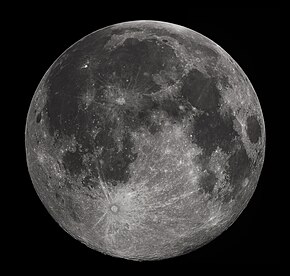The "Address at Rice University on the Nation's Space Effort", or better known informally as the "We choose to go to the moon" speech, was delivered by U.S. President John F. Kennedy to a large crowd gathered at Rice Stadium in Houston, Texas on September 12, 1962. It was one of Kennedy's earlier speeches meant to persuade the American people to endorse the Apollo program, the national effort to land a man on the Moon.
Background
When John F. Kennedy became president during January 1961, many Americans perceived that the United States was losing the Space Race with the USSR, which had successfully launched the first artificial satellite, Sputnik 1, almost four years earlier. The perception increased when during April 1961, Russian cosmonaut Yuri Gagarin became the first man in space before the U.S. could launch its first Project Mercury
astronaut. Convinced of the political need to make an achievement which
would decisively demonstrate America's space superiority, and after
consulting with NASA
to identify such an achievement, Kennedy stood before Congress on May
25, 1961, and proposed that “this nation should commit itself to
achieving the goal, before this decade is out, of landing a man on the
Moon and returning him safely to the Earth.”
Kennedy's goal gave a specific mission to National Aeronautics and Space Administration's Apollo program. This required the expansion of NASA's Space Task Group into a Manned Spacecraft Center. Houston, Texas was chosen as the site, and the Humble Oil and Refining Company donated the land during 1961, with Rice University
as an intermediary. Kennedy took advantage of the 1962 construction of
the facility to deliver a speech on the nation's space effort.
The speech
On September 12, 1962, President Kennedy delivered his speech before a
crowd of 35,000 people in the Rice University football stadium. The
most memorable and quoted portion of the speech is in the middle:
We set sail on this new sea because there is new knowledge to be gained, and new rights to be won, and they must be won and used for the progress of all people. For space science, like nuclear science and all technology, has no conscience of its own. Whether it will become a force for good or ill depends on man, and only if the United States occupies a position of pre-eminence can we help decide whether this new ocean will be a sea of peace or a new terrifying theater of war. I do not say that we should or will go unprotected against the hostile misuse of space any more than we go unprotected against the hostile use of land or sea, but I do say that space can be explored and mastered without feeding the fires of war, without repeating the mistakes that man has made in extending his writ around this globe of ours.There is no strife, no prejudice, no national conflict in outer space as yet. Its hazards are hostile to us all. Its conquest deserves the best of all mankind, and its opportunity for peaceful cooperation may never come again. But why, some say, the Moon? Why choose this as our goal? And they may well ask, why climb the highest mountain? Why, 35 years ago, fly the Atlantic? Why does Rice play Texas?We choose to go to the Moon! ... We choose to go to the Moon in this decade and do the other things, not because they are easy, but because they are hard; because that goal will serve to organize and measure the best of our energies and skills, because that challenge is one that we are willing to accept, one we are unwilling to postpone, and one we intend to win ...

in Wikipédia




Sem comentários:
Enviar um comentário